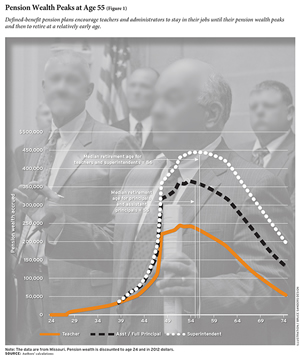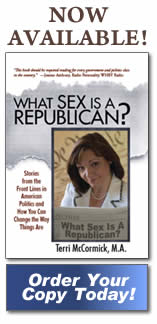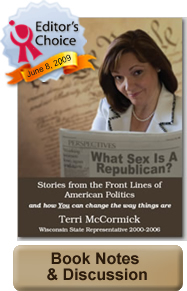 Little did I know that the Republican Party of my state, along with house assembly “leaders,” would take out its own sitting governor. These same leaders would be investigated and indicted within the same month for felony misuse of public office. This was more than simple “sibling rivalry”—it was something far more brutal. It involved Republican leaders smearing the reputation of their own political party’s governor and then ruining any future career he might have in public office. I was beginning to realize that the beautiful marble hallways, majestic paintings and ornately designed dome in the state capitol far outclassed many of its inhabitants.
Little did I know that the Republican Party of my state, along with house assembly “leaders,” would take out its own sitting governor. These same leaders would be investigated and indicted within the same month for felony misuse of public office. This was more than simple “sibling rivalry”—it was something far more brutal. It involved Republican leaders smearing the reputation of their own political party’s governor and then ruining any future career he might have in public office. I was beginning to realize that the beautiful marble hallways, majestic paintings and ornately designed dome in the state capitol far outclassed many of its inhabitants.
It was 2001, just a month after my swearing-in as a freshman state legislator. I was about to receive my first official call from the press. No policy briefing, no amount of study of public policy options could have prepared me for what I was about to hear.
The reporter on the other end of the telephone began, “Your house Chairman of Joint Finance held a press conference earlier in the day. He blasted your party’s governor as not being a ‘real Republican’ and then he said that the governor’s budget was a sham!” I shook off the statement, at first thinking it was a joke. After I processed the question in my mind, I had a few questions of my own for the reporter. “Okay, back up the tape. What did my Joint Finance chair do?”
He repeated the same story. The Joint Finance chair, a young kid from Marinette, had held a television news conference and discredited his own sitting governor, right after Governor McCallum had announced his 2001 state budget to the press. I was at that budget announcement in Green Bay, with most of my Republican colleagues; I supported his budget. This was the most fiscally conservative governor the GOP had in a long time.
I responded, off the record, “That’s impossible. Governor McCallum is an innovator. He has brilliant ideas on economic development and technology. I know this governor; I worked with him four years prior as a private citizen. He is the reason our state has a charter school law.”
As shocking as that phone conversation was, nothing prepared me for what I saw when I pulled into my driveway. The television cameras were rolling. They wanted to know if I was willing to speak on camera.
I’d been in public office for a mere month, and I’d never dealt with the press. I began to ask them if any one of my esteemed colleagues would go on film. After they assured me that “none of them” was willing to give a comment, I agreed.
There was only one course of action to take: tell the truth. “I have all the respect in the world for all of my Republican Party colleagues. However, I have a far different opinion of Governor Scott McCallum. I believe him to be a fiscal conservative and a solid head of the Republican Party in Wisconsin.” Whew. That wasn’t so hard.
As I watched the news later that evening, I began to put the puzzle pieces together. This childish attack on the governor had been staged. There were maybe two people in the room with the television cameras. The immature young man, who somehow had enough years under his belt to be appointed as the chair of Joint Finance, was trying to take out his own party’s governor. He was finagling behind the scenes to take over the GOP house speaker slot, knowing his boss would be indicted on felony counts for misuse of public office. This soon-to-be junior speaker of the house assembly was on television, taking out the only Republican in his way—the sitting Governor.
What I couldn’t understand as a freshman legislator was why this attack was occurring at all. Little did I know that this was a tactic used by the GOP, my party, all too often to separate the chosen few of the political machine from the noisemakers—those people who were actually trying to effect real change for the people of our state.
The next Republican caucus in the house assembly was scheduled for the next week. It coincidentally overlapped with Take Your Daughter to Work Day, a tradition in my home. My then-fifteen-year-old daughter, Kristen, accompanied me to the legislative session. Sadly, she was the most mature one in the room, for there were grown men threatening each other and her mom during those meetings.
We have rules that prohibit sharing of information of what occurs in closed caucuses, so I will just share with you the actions that my daughter saw from the people we elected to guard principles and ethics and to provide leadership.
Kristen viewed what could only be described as staged political theatre.
The first lines were given by the chair of Joint Finance. With a pitiful look on his face, as though he were the wronged party, he began, “I don’t know why Terri got up on television and trashed me, but I don’t think that was right.”
He looked in my direction expecting a response; I didn’t provide it. I remembered what I carefully had told the television crew: “I respect all my Republican colleagues, but I reject any of those statements about our governor.” If anything, this kid should have been apologizing to us.
Next, his sidekick—a six-foot-ten guy with a Herman Munster appearance and a brutish temperament—raised his voice to the level of eardrum-shattering on a boom box in his attempt to create a smokescreen for his “wronged” friend. As he pointed his finger in my direction, I continued to tune him out. I saw no need to respond to the theatre; it was not amusing.
Maintaining his booming and thunderous roar, pushing his voice further toward me, he demanded my attention by asking, “Do you know who this man is?”
Racing through my mind were the retorts, “Who? That inexperienced child?” and “You mean this monkey at a circus?” But that wouldn’t do for this august body, the Wisconsin state legislature; I wouldn’t be disrespectful.
Still, I had had enough of the histrionics of the soon-to-be junior speaker and his sidekick. And it looked like no one else was going to say anything to pull this outrageous behavior in line. It was as though they were handing their school lunch boxes to the schoolyard bullies. As everyone else in Fourth Floor North in the state capitol slid down in their chairs, I realized that it was up to me … again. At least, I thought someone should say something in defense of our governor.
I began, “I do not know who you both think you are. The fifty-six thousand people who elected me to this body did not elect someone who would sit like a lemming and watch as her own party trashes its sitting governor. Unless you would like to start referring to Attorney General Doyle as “Governor Doyle” right now, I suggest we begin to start working with Governor Scott McCallum.”
My comments drew applause from the majority of my caucus, but the damage was done. Standing up for what was right that day would cost me dearly. From that day forward, our party’s next speaker would see me as competition—an upstart and someone who was in his way. Never mind the fact that the “team” was tearing apart one of its own— the governor. I was trouble, and they weren’t going to rest until they taught me how to fall in line.
Impossible? As you read this book you will begin to understand that the politics of governance is not about political party and ideology as much as it is about obedience to the “front row”—to those party bosses who pay for political elections and who dictate the front row’s actions. Politics is all about the party elites who hold the purse strings and command obedience—if you let them….To continue reading this chapter, get your copy of “What Sex is a Republican in paperback or Kindle edition on Amazon.
About the Author:
Terri McCormick is an author, policy expert, educator, and former state representative to the Wisconsin State Legislature. Today, she offers her expertise in public and government relations through McCormick Dawson CPG Ltd., a trusted consultancy of independent contractors.
Ms. McCormick serves as president and CEO of the company, drawing from more than two decades of professional experience, a strong educational foundation, a host of industry-related publications, and a multitude of accolades, awards and formal recognitions. Holding a Master of Arts in administrative leadership from Marian University, and a Bachelor of Science in political science and public administration from the University of Wisconsin, Ms. McCormick received both degrees with high honors.
“What Sex is a Republican?” is sold on Amazon in both the paperback edition as well as Kindle edition. Read reviews on Amazon here.
 Courage is not found in just those who ride out into battle or face down mortal enemies. Living each day well takes courage. Before I began writing this book, I was afraid—it is important that I admit that to you and to myself. I was afraid that speaking out would deliver problems to my door, problems that I could easily avoid by being quiet.
Courage is not found in just those who ride out into battle or face down mortal enemies. Living each day well takes courage. Before I began writing this book, I was afraid—it is important that I admit that to you and to myself. I was afraid that speaking out would deliver problems to my door, problems that I could easily avoid by being quiet.
 Little did I know that the Republican Party of my state, along with house assembly “leaders,” would take out its own sitting governor. These same leaders would be investigated and indicted within the same month for felony misuse of public office. This was more than simple “sibling rivalry”—it was something far more brutal. It involved Republican leaders smearing the reputation of their own political party’s governor and then ruining any future career he might have in public office. I was beginning to realize that the beautiful marble hallways, majestic paintings and ornately designed dome in the state capitol far outclassed many of its inhabitants.
Little did I know that the Republican Party of my state, along with house assembly “leaders,” would take out its own sitting governor. These same leaders would be investigated and indicted within the same month for felony misuse of public office. This was more than simple “sibling rivalry”—it was something far more brutal. It involved Republican leaders smearing the reputation of their own political party’s governor and then ruining any future career he might have in public office. I was beginning to realize that the beautiful marble hallways, majestic paintings and ornately designed dome in the state capitol far outclassed many of its inhabitants. The McCormick Standard strongly recommends this article for the sake of an ‘honest’ dialogue about the future of public education in the United States.
The McCormick Standard strongly recommends this article for the sake of an ‘honest’ dialogue about the future of public education in the United States. 
 Soul-searching took me to my first inspiration and role model in political office, Representative Earl McEssy. It was this man’s act of kindness after my father had died that lingers with me still. “Go to Representative McEssy if you or Mom need me after I am gone,” Dad told me when he knew that his death was certain.
Soul-searching took me to my first inspiration and role model in political office, Representative Earl McEssy. It was this man’s act of kindness after my father had died that lingers with me still. “Go to Representative McEssy if you or Mom need me after I am gone,” Dad told me when he knew that his death was certain.

